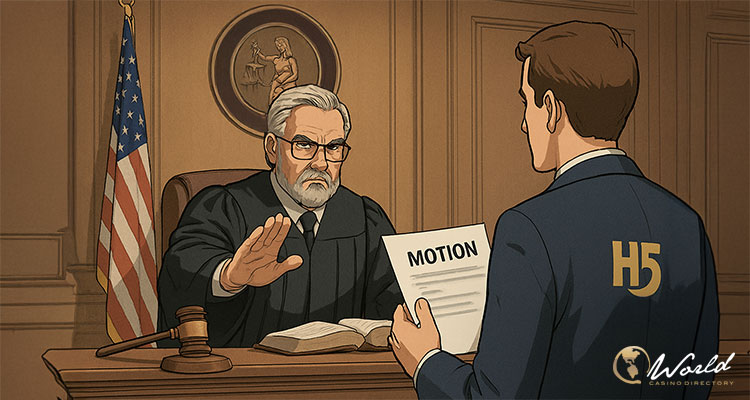High 5 Entertainment has encountered a significant legal setback in California after the Superior Court of San Francisco denied four separate motions submitted by the company. The lawsuit, filed on December 30, 2024, by plaintiff Thomas Portugal, challenges the legality of High 5’s sweepstakes-based gaming platform and its compliance with California’s gambling laws.
The motions denied by the court included requests to compel arbitration, strike the amended complaint, quash service of summons, and begin arbitration proceedings. Judges reviewing the case concluded that the arbitration terms outlined in High 5’s user agreements were “unconscionable” and unfairly tilted in favor of the operator, according to Gambling Insider.
Judge Christine Van Aken emphasized California’s vested interest in maintaining its gambling regulations, stating: “High 5 cites the burden of defending in California but shows at most inconvenience. California has significant interests in enforcing its public policies concerning gambling.”
Why the Court Rejected Arbitration
High 5’s defense relied heavily on moving the dispute into arbitration, arguing that parties could delegate arbitrability questions to an arbitrator. However, the court ruled that there was no “clear and unmistakable delegation” of such authority. Instead, it determined that disagreements must be settled in court rather than through a private arbitration process.
Plaintiff Portugal opposed arbitration on three grounds: that the case falls outside any arbitration agreement, that arbitration would be unfair, and that the contract itself is illegal and void. The court sided with him on the first two arguments but did not resolve the third, noting that questions of whether the contract constituted illegal gambling were tied to broader evidentiary issues.
Judges also found the arbitration rules embedded in High 5’s Terms of Service both procedurally and substantively flawed. Procedural issues stemmed from the adhesive nature of the contract, where players had little choice but to accept the terms. Substantively, the terms included a restrictive one-year statute of limitations, mandatory cost-sharing that disadvantaged consumers, and limits on public injunctive relief.
Judge Anne-Christine Massullo highlighted how the terms restricted players’ ability to protect themselves: customers were required to pursue monetary damages before even attempting to stop harmful practices through injunctions. This structure, she concluded, created unnecessary barriers and unfairly insulated the company from accountability.
Broader Impact on Sweepstakes Casino Industry
The ruling has immediate consequences for High 5 Entertainment, as arbitration would have kept the dispute private and potentially shielded the company from broader scrutiny. Now, the lawsuit will move forward in a public courtroom where filings and arguments will remain accessible.
For the sweepstakes casino industry, the decision underscores growing judicial skepticism toward contracts that heavily favor operators at the expense of consumers. Many sweepstakes platforms use similar arbitration clauses, shortened claim deadlines, and fee-shifting provisions. If California ultimately rules against High 5, it could encourage more consumers to challenge such terms and reduce the enforceability of arbitration clauses nationwide.
The case also comes at a time when sweepstakes casinos are facing heightened regulatory and legislative pressure. Earlier this year, High 5 withdrew from six states amid legal challenges but continues to operate in California. Meanwhile, lawmakers in the state are advancing Assembly Bill 831, a proposal to ban sweepstakes-style gaming altogether.
Legal experts suggest that the ruling against High 5 may become a reference point for future disputes. Daniel Wallach, a gaming law specialist, has noted that decisions like this could play a pivotal role in defining the legal boundaries for sweepstakes gaming across the United States.
What Comes Next
With arbitration denied, Portugal’s lawsuit will now proceed through California’s courts. He is seeking public injunctive relief, which could potentially shut down High 5’s sweepstakes operations if the court rules in his favor.
The outcome of this case could have lasting implications not just for High 5 but for the entire sweepstakes casino sector. As regulators, courts, and legislators intensify scrutiny, operators may soon face an industry landscape far more restrictive than before.


